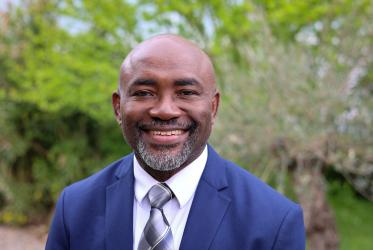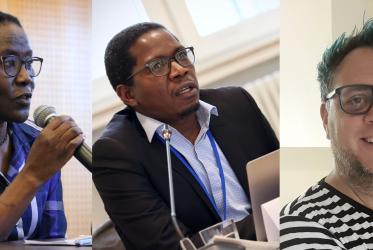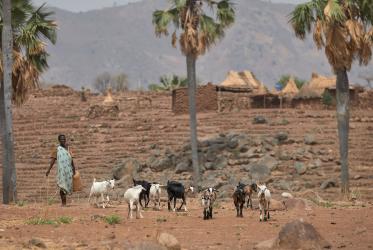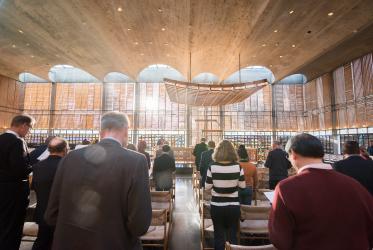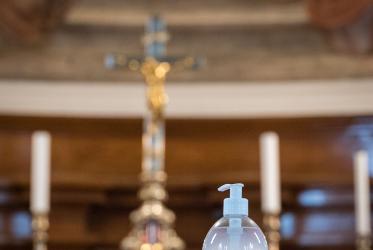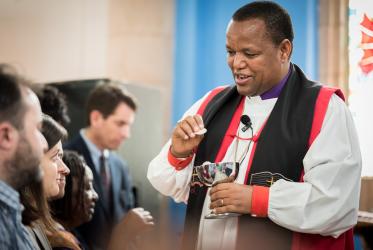Displaying 1 - 17 of 17
23 October 2023
WCC posts job openings for leadership staff
27 January 2022
Plans for 11th WCC Assembly build excitement across the globe
18 February 2020
Dr Saïd Ailabouni: God is on the side of rejected, oppressed, occupied
12 September 2019
Arusha offers vibrant and colourful worship life
12 March 2018
Hielke Wolters: Apostle of mission strategies
01 August 2016
Pilgrimage of justice and peace gives vision for WCC programmes
22 November 2014

